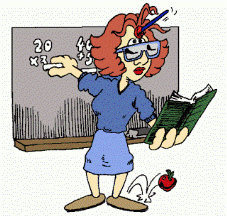Few math degrees + little teacher training = bad Israeli math teachers
The state comptroller's report said it was imperative for the Education Ministry to prepare a comprehensive plan to rectify the problem. But Prof. Azriel Levy, a former chairman of the ministry's professional advisory committee on math, warned that the problem "cannot be solved in a day."
Levy said the lack of teachers with training was even more serious than the lack of those with degrees in math. "And the situation will grow even worse in the future, because the teachers who immigrated from the [former] Soviet Union are at retirement age, and no effort was made to retain the best of them," he said. Moreover, he said, "University graduates in math have more options in other professions; they'll choose teaching only as a last resort."
Levy noted that the comptroller's findings are not new. Data compiled by the Central Bureau of Statistics in 2009 found that only 22 percent of math teachers under 45 who had academic degrees had majored in math in college. That report also found that 6 percent of math teachers in this age group had no college degrees at all, while only 45 percent had taken the highest-level matriculation exam in math. Finally, the earlier report found that there had been a 30 percent drop in the number of new math teachers from 1998 to 2008.
Hagar Gal, who heads the math and physics education program at the David Yellin Academic College of Education, cited another worrying statistic: This year exactly four students began studying in her institution's program for high-school math teachers. "The situation here isn't much different than it is at other [teachers] colleges," she said.
Gal said untrained math teachers not only fail to help students, but also tend to turn them off the subject. "The principal harm is in creating a negative, monstrous image, a demonization of math," she said.
Bad math teaching can happen for two reasons, she said: First, someone who was forced to teach math may not like or understand the subject; or second, because there are a limited number of good math students, even someone with a degree in math will have to deal with weaker students, and never having experienced their difficulties, may have trouble helping them without having received specific training on how to teach the subject.
The lack of qualified teachers is not new, and the Education Ministry has tried to deal with the problem in part by retraining people with degrees in math or related fields as math teachers. In recent years, 163 such teachers have been placed in schools. But Gal said that while this is tolerable in the short term, the abbreviated training such teachers receive makes it a poor long-term solution.
Both Gal and Levy complained that the ministry isn't doing enough to solve the problem. "In general, we need to change the status of teachers," Gal said. "But since I'm not optimistic, let's at least improve the status of math teachers. For instance, it's worth giving stipends to people who study primary or secondary math [education]."
Levy, too, thinks the real solution is to improve the status of teachers. "It's possible to take steps," he said. "But the Education Ministry prefers to hide its head in the sand."
Yarden Skop

